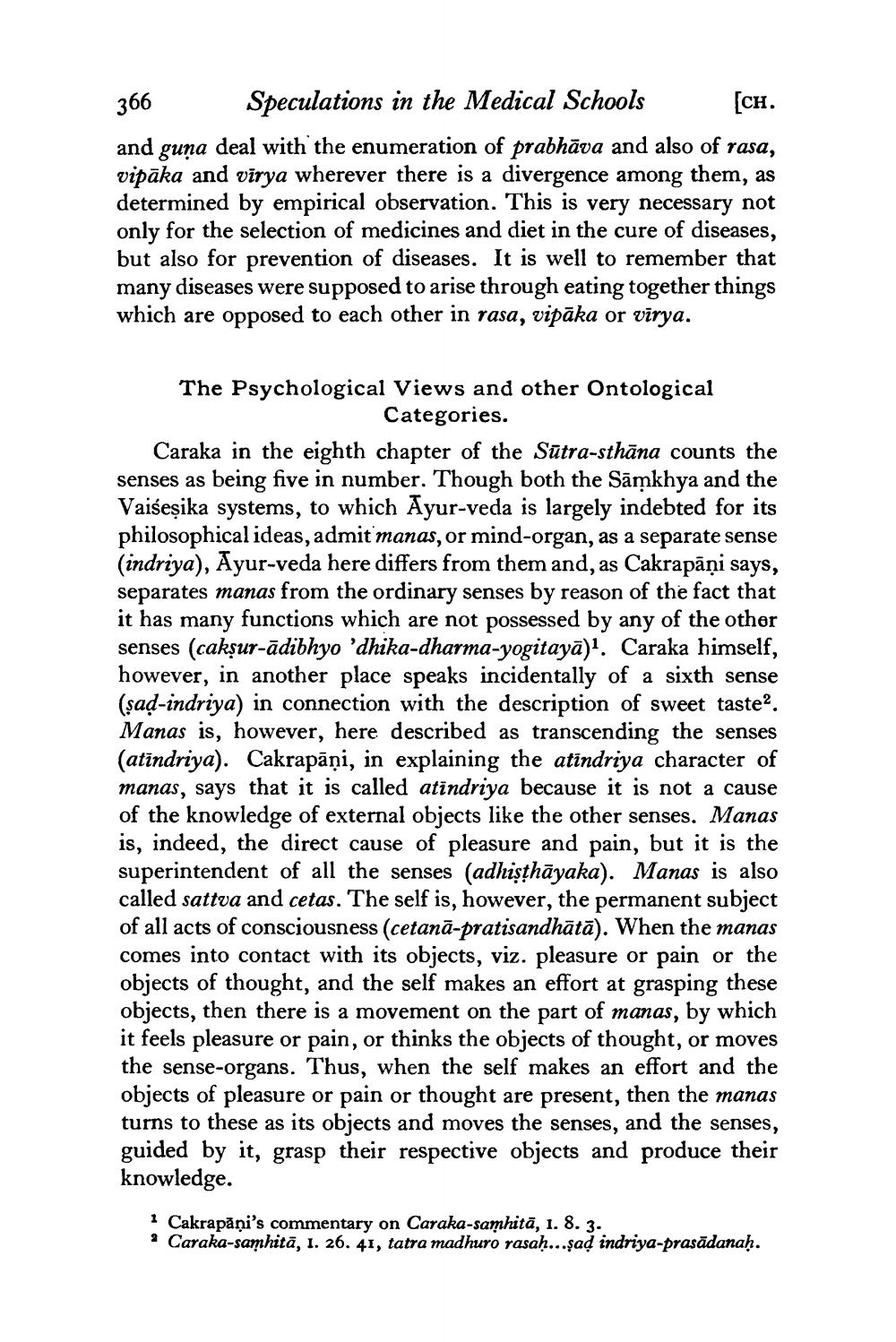________________
366
Speculations in the Medical Schools [CH. and guna deal with the enumeration of prabhāva and also of rasa, vipāka and vīrya wherever there is a divergence among them, as determined by empirical observation. This is very necessary not only for the selection of medicines and diet in the cure of diseases, but also for prevention of diseases. It is well to remember that many diseases were supposed to arise through eating together things which are opposed to each other in rasa, vipāka or vīrya.
The Psychological Views and other Ontological
Categories. Caraka in the eighth chapter of the Sūtra-sthāna counts the senses as being five in number. Though both the Sāmkhya and the Vaiśesika systems, to which Ayur-veda is largely indebted for its philosophical ideas, admit manas, or mind-organ, as a separate sense (indriya), Ayur-veda here differs from them and, as Cakrapāņi says, separates manas from the ordinary senses by reason of the fact that it has many functions which are not possessed by any of the other senses (cakşur-ādibhyo 'dhika-dharma-yogitayā)!. Caraka himself, however, in another place speaks incidentally of a sixth sense (sad-indriya) in connection with the description of sweet taste?. Manas is, however, here described as transcending the senses (atīndriya). Cakrapāņi, in explaining the atîndriya character of manas, says that it is called atindriya because it is not a cause of the knowledge of external objects like the other senses. Manas is, indeed, the direct cause of pleasure and pain, but it is the superintendent of all the senses (adhisthāyaka). Manas is also called sattva and cetas. The self is, however, the permanent subject of all acts of consciousness (cetanā-pratisandhātā). When the manas comes into contact with its objects, viz. pleasure or pain or the objects of thought, and the self makes an effort at grasping these objects, then there is a movement on the part of manas, by which it feels pleasure or pain, or thinks the objects of thought, or moves the sense-organs. Thus, when the self makes an effort an objects of pleasure or pain or thought are present, then the manas turns to these as its objects and moves the senses, and the senses, guided by it, grasp their respective objects and produce their knowledge.
1 Cakrapāņi's commentary on Caraka-samhitā, 1. 8. 3. * Caraka-samhitā, 1. 26. 41, tatra madhuro rasaḥ...şad indriya-prasādanaḥ.




